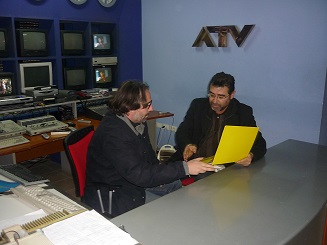LESSON
Lesson Learned: Democratic Dialogue through Media in Sierra Leone
While the project component that worked with the journalists was sustainable, a more systematic engagement with the range of key stakeholders would have further enhanced sustainability. A project strategy section with a more explicit stakeholder analysis and a clearer justification of intermediary results would have identified government officials and elected representatives as target audiences needing to be addressed with specific techniques.
Project Name
Project Partner
Journalists for Human Rights
Project Description
The project aimed to build capacity of local media in Sierra Leone to facilitate a national dialogue among civil society, government and citizens. It targeted primary beneficiaries that included: journalists from radio and print media who were awarded fellowships and trained in investigative journalism through production and publishing human right stories; NGO grantees; and local communities targeted through forums and workshops to increase public knowledge on the role of the media in human rights protection and promotion.
The project responded to a need for improved democratic dialogue, and correctly identified the need for enhanced democratic debate as a precondition for entrenching democratic values and policies in post-war Sierra Leone. It also correctly identified the media as a key player, both as a space to “host” that debate and as a provider of substantive information. However the project's relevance was reduced by its failure formally to engage with editors/publishers and with relevant high-level institutional actors. The project document lacked a complete analysis of the stakeholders, their respective needs and the various messages that should be addressed to them. Nevertheless, the project contributed to establishing a critical mass of journalists aware of human rights reporting and of the challenges of balanced political reporting.
Report
Evaluation Date
March 2011
Theme
Country
